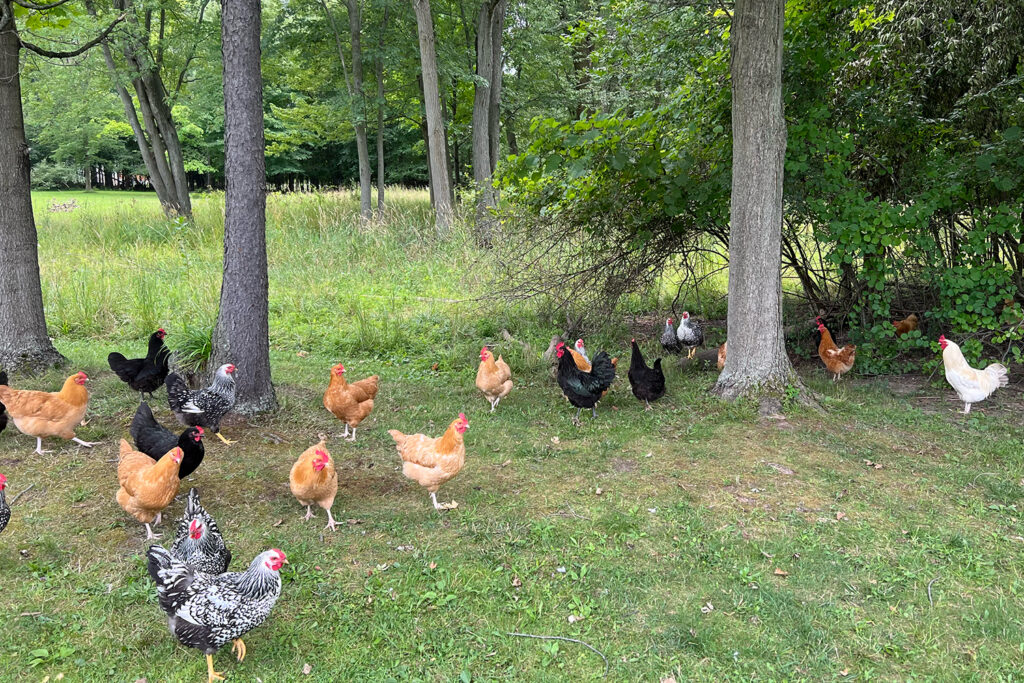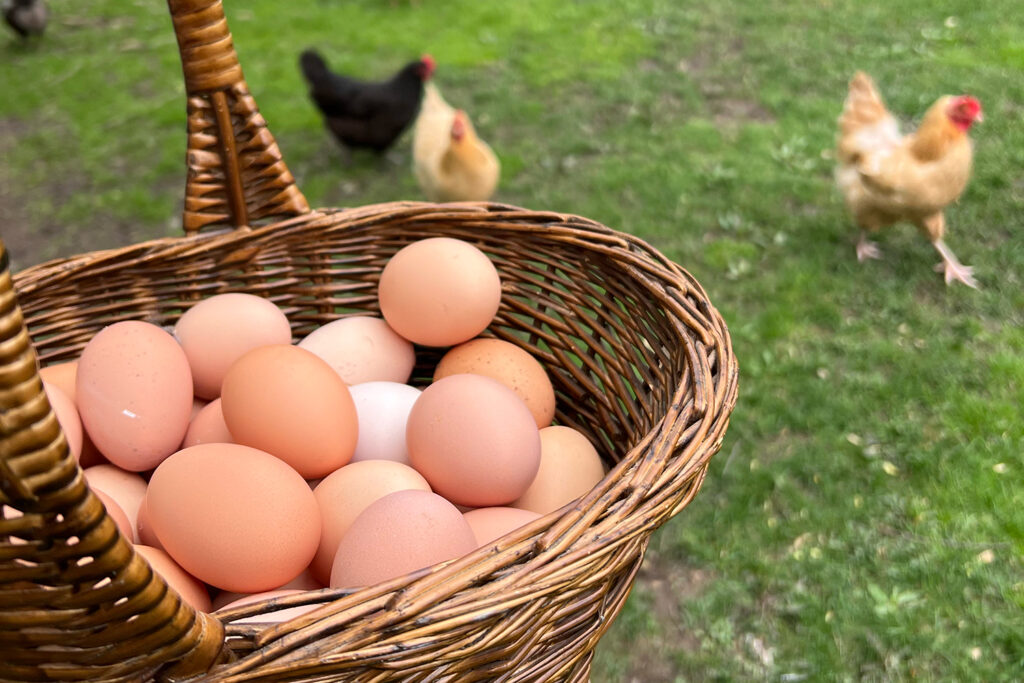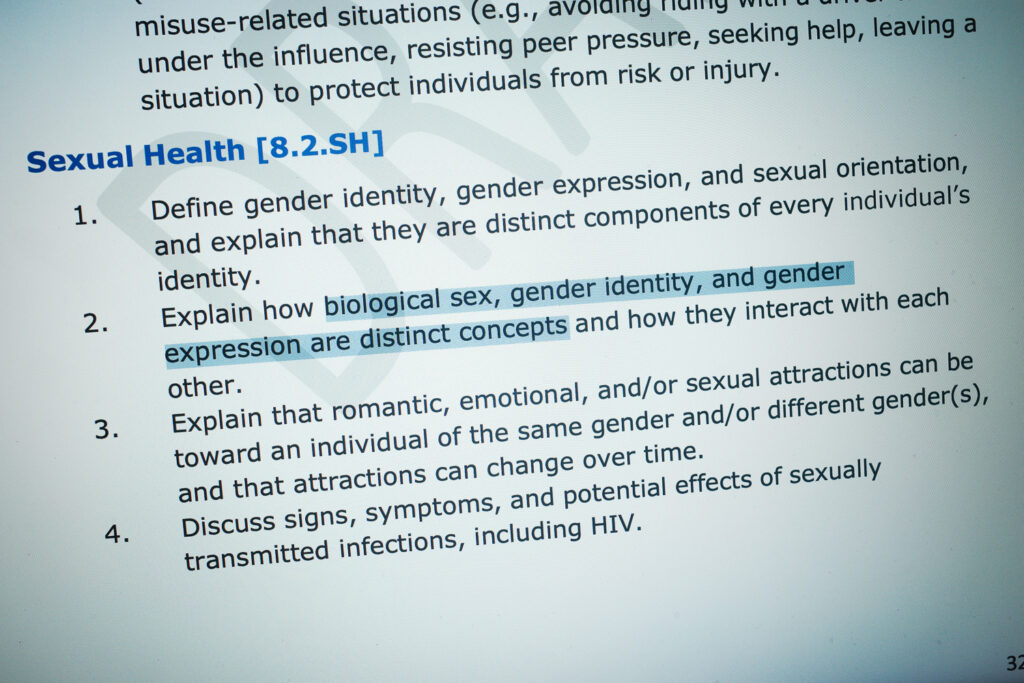Looking for affordable eggs in Michigan? You might have to cross the state lines.
Michiganders who hit the grocery store over the holidays were met with this unpleasant realization after discovering that entire refrigerated sections reserved for eggs were nearly empty. The only cartons left were insanely expensive. One store in North Branch marked its prices up to $19.29 for two dozen.
The store’s explanation to customers? “As of Dec. 31, 2024, Michigan law states that retailers can only sell cage-free eggs. You will notice this change in our stores as we remove conventional eggs from our assortment. Due to recent nationwide supply shortages on cage-free eggs, there has been a drastic increase in costs to source cage-free eggs that will meet our strict quality standards and comply with this law.”
Michigan’s lawmakers are indeed to blame. The law that just took effect requires stores to only sell cage-free eggs from producers and farms with more than 3,000 chickens. The bill defines a cage-free housing system as one in which hens are allowed to roam freely, with some exceptions for external barriers, and have access to “enrichments that allow them to exhibit natural behaviors,” such as, I presume, squawking, defecating, and fleeing from the rooster. It’s on the retailers to verify whether the eggs they’re selling meet these standards.
There’s no question both political parties are responsible. The law was originally passed in 2009 by Michigan’s legislature, which was split at the time between Democrats and Republicans, and signed by Democratic Gov. Jennifer Granholm. Republicans in particular should have known better, but they caved to pressure from the Humane Society, which threatened to organize a ballot initiative in support of even stricter laws on egg farmers if lawmakers didn’t do as demanded.
The bill’s implementation was then delayed by state Republicans in 2019 in order to give retailers and egg producers some more time to adjust to the law’s requirements. They could (and should) have pushed for a total repeal, though admittedly the odds of Gov. Gretchen Whitmer signing the measure was zero to none.
At the very least, Republicans could have avoided making the law worse. Alas.
Whereas the 2009 law only ordered egg producers to phase out battery cages and invest in larger cages for hens, the 2019 update that is now in effect bans cages altogether and even goes so far as to prohibit the sale of eggs from all producers outside of Michigan that still cage their hens. In other words, Michigan’s lawmakers, including those who claim to care about affordability and the free market, gutted consumer choice completely—again at the behest of special interest groups, like the Humane Society.
Republican state Sen. Kevin Daley, who notably voted against the 2009 bill but sponsored the 2019 update, claimed he supported the change because the egg industry needed an additional push in the right direction. “The industry has moved forward and the marketplace is now demanding cage-free eggs,” he said. “It puts the producers in a position where they need to move forward.”
Except the marketplace doesn’t “demand” anything. Consumers do. And Michigan’s consumers have made it quite clear that they prefer affordable produce to just about anything else right now, especially with inflation continuing to raise the costs of their grocery bills. In the past year alone, wholesale prices for large eggs have increased by 150%. And as the North Branch grocer’s recent price hikes suggest, things now will likely get much worse before they get any better.

This isn’t to say there’s no value in the intent behind Michigan’s cage-free egg law. Like most respectable people, I want farms to treat their livestock humanely. And as someone whose family has its own mini-chicken operation in Metro Detroit, I can confirm the eggs produced by chickens fed with good grain and allowed to roam freely are much better than anything you could buy at the store. Both are important factors, which is why many consumers voluntarily have made the switch to cage-free or pasture-raised eggs in recent years.
Again, the problem is when politicians decide they get to make that choice for us. And who even benefits here? Not the consumers, who will have to deal with higher prices. Not smaller, more ethical farmers, who will now struggle to differentiate their products from that of bigger producers. Not even the hens benefit, since, as the Humane Society itself admits, “cage-free” does not mean the hens are out in a pasture roaming freely, as they do at my parents’ property. They’ll still be cooped up with thousands of other birds.
The only people who really stand to benefit are Michigan’s lawmakers, who now get to pat themselves on the backs publicly for doing their part to combat animal cruelty. The rest of us better start searching Facebook for the local hit up.
Kaylee McGhee White is editor-in-chief of Independent Women Features, a Steamboat Institute media fellow, and a columnist for Michigan Enjoyer. Follow her on X @KayleeDMcGhee.



